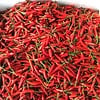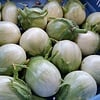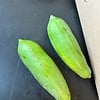mangistan - box 2kg
Mangistan Read more
Mangosteen
Mangosteen is a tropical evergreen tree with edible fruit thick and leathery leaves. The tree is colloquially known as Mangosteen while it is known in internationally as Purple Mangosteen.
Mangosteen Origin
The fruit is said to have originated in the Moluccas and the Sunda Islands. The Malay Archipelago was also one of the first places where this fruit was seen to grow. Research suggests that the tree might have been cultivated first in Myanmar or Thailand.
Mangosteen Scientific Name
The scientific name of Mangosteen is Garcinia Mangostana.
Mangosteen Height
Mangosteen grows very tall. It can usually stand anywhere from 20 to 80 feet (7-25 m) when fully mature. Its fruits are generally about two to three inches in size and have a juicy flesh similar to that of pineapples and peaches.
Mangosteen Fruit
The fruits of this plant are inedible. They are approximately 2-3 inches in diameter or about the size of a small apple or peach. The hard rind of this fruit may be about one inch thick consisting of a soft white opaque center. The white middle of the fruit looks similar to garlic but is mildly sweet and tart in taste.
A mangosteen fruit is usually opened by a firm press or twist on its outer surface. This is unlike opening an orange that is done by removing the peel.
Mangosteen Flavor
The Mangosteen fruit tastes sweet with a mild hint of sourness. If you have not already tasted it, you will find its flavor quite unlike most fruits that you have tasted.
Mangosteen Growth
This plant usually grows in hot, humid regions of south eastern Asia such as Singapore, Indonesia, Thailand, Vietnam and Malaysia. It can also be found in parts of North America such as Hawaii and Canada. It is also grown in south India.
Mangosteen Medicinal Properties
Over the years, the medicinal value of this plant has been recognized. The rind of the fruit is used to make tea that is useful in treating diseases like gonorrhea, diarrhea and bladder infections.
The rind contains compounds like Garcinone B, Garcinone E, Alpha-mangostin and Beta-mangostin which are collectively referred to as Xanthones.
Mangosteen Xanthones Benefits
Laboratory tests have revealed anti-cancer properties in the Xanthones compound. This compound has also been found to possess anti-microbial, anti-fungal and anti-inflammatory properties.
Mangosteen Side Effects
Studies indicate several side effects of Mangosteen. Medical researchers say that Xanthones contained in the rind of its fruit can intervene in normal blood-clotting process. It is also suspected to interfere with blood-thinning medications like Warfarin and cause bleeding.
Research also suggests that higher doses of Xanthones may lower the response of the animal Central Nervous System (CNS). The compound may lead to sedation when mixed with medications or herbs. It has anti-serotonin properties which block the release of Serotonin compound, which plays an important role in regulating brain functions, memory, sleep and reduces depression.
High doses of Xanthone may also prove toxic in some cases.
Mangosteen Ulcerative Colitis
The fruit is also useful in curing Ulcerative Colitis. The anti-inflammatory properties of the medicine help it cure intestinal swelling and provide relief from abdominal pain. The fruit also naturally provides relief from diarrhea, fever and chills caused by this disease.
Mangosteen Energy
According to nutritionists, even small amounts of this fruit can naturally increase the energy. Consuming this fruit over an extended period of time causes the overall energy level of the body to rise. Naturally, Mangosteen is recommended to people who exercise or are involved in other energetic activities.
Mangosteen and Cancer
The fruit has been found effective in naturally treating cancer. It is found to kill cancer cells and cause programmed death of cells (apoptosis) for a few types of cancer. The Xanthones found in this fruit has anti-proliferation properties that result in destruction of cancer cells. It can also shrink the tumor in the body. This is why it is seen as a possible cure for cancer.
Mangosteen and Allergies
Consumption of Mangosteen can cause allergies in people who are hypersensitive to fruits. Having this fruit can result in allergenic reactions in the body like itchy skin rashes, temporary or minor joint pains and headaches. However, no respiratory difficulty or life-threatening complication has been reported as yet.
However, many South East Asian people have found this fruit to be effective in reducing allergenic reactions in some cases. The skin and also the flesh of this fruit contain anti-oxidants and vitamins that can combat free radicals and reduce allergenic inflammation in the body. People who do not suffer from fruit hypersensitivity but have other types of allergies can add Mangosteen to their daily diet.
Mangosteen and Minerals
This fruit contains some of the most important minerals like Iron, Calcium and Phosphorus. Iron helps deposit oxygen in the bloodstream and transports it to the tissues. It also drives the cellular chemical reactions and helps support the human metabolism. Calcium maintains the bone tissues and supports the functions of the muscles, heart and the nervous system. Phosphorus supports the development of the bone tissue and the performance of the nerves, kidneys and heart.
Mangosteen Vitamins
Mangosteen is a rich source of Vitamin C, Vitamin E and Vitamin B Complex. Vitamin C has been found to be a cure for cancer, common cold and other diseases. Vitamin B complex is necessary for the growth and proper functioning of the body. Vitamin E is essential for reproduction and it works as an essential antioxidant neutralizing the free radicals present in the body.
The fruit also contains two essential vitamins, Thiamine and Ascorbic Acid.
Mangosteen Cultivation
Mangosteen is cultivated in many eastern countries like Malaysia, Philippines, Sri Lanka, Indonesia and Burma. If you want to grow this plant, it is necessary to keep these steps in mind.
- Plant the trees 8 to 10 meters apart to leave ample space for growth of each of them. The plants should be planted with utmost care to leave their roots undamaged.
- It is wise to prune the plant after every 3-4 months. Trim off the old and damaged branches to promote growth of the plant. It is better to carry out the pruning when fresh leaves, flowers and fruits have not sprouted from the branches.
- Any weeds should be removed from the plant after every month to make sure of the soil fertility and allow the plant to grow without obstruction.
- Common fungicides should be sprayed on the plant for 2-4 times every year to keep it safe from pests and diseases.
- Water the plant frequently to keep it well. If you live in extremely hot and dry climatic conditions, it is best to water the plant every day. Enough water should be provided to the plant while in the seedling stage. However, standing water can be damaging for the health of Mangosteen seedlings.
- Apply about 200-250 gms of fertilizer into the holes where you have planted the seeds. Cover this with soil to prevent its vaporization.
Mangosteen and Pregnancy
There is no reason to believe that it is not safe to have Mangosteen while pregnant. However, it is best to consult physician if you want to have Mangosteen during pregnancy. The fruit contains certain chemicals that may interfere with the prescription and non-prescription drugs recommended for pregnant women.
Mangosteen Health Benefits
Mangosteen contains antioxidants that are useful for the body. It has Xanthones that are useful in treating menstrual problems, tuberculosis and Urinary Tract Infection (UTI). As aforesaid, the fruit is also good at naturally curing Cancer, Dysentry, Gonorrhea, Thrush and Eczema. It also reduces fever and pain in sufferers.
Some of the other Mangosteen fruit benefits are
- It fights bacteria that are too strong for antibiotics.
- It prevents high cholesterol and lowers the risk of having atherosclerosis, a condition that is caused by fat deposition on the arterial walls.
- It fights common gastrointestinal conditions like Gastritis, Diarrhea, Ulcers, Acid Reflux and other irritable bowel syndromes.
What Is Mangosteen Extract?
Mangosteen Extract is the liquid extracted from the Mangosteen plant. It is regarded as an effective natural medicine owing to its strong anti-inflammatory and antibacterial properties. Regular intake of this extract can boost the health in various ways like
- Improving blood circulation
- Providing relief from arthritis
- Lowering the frequency of attacks of asthma
- Boosting the immune system
Regular consumption of pills made from Mangosteen extract can improve appetite, clean the blood, boost the heart functioning, improve bone structure and make skin surface better.
Mangosteen Yeast Infections
Mangosteen extract is effective in naturally curing the yeast bacteria. Regular consumption of the Mangosteen extract can bring relief to patients of Yeast Infections. The potent antioxidant properties of the liquid make it suitable to fight various diseases.
Mangosteen Calories
There are 143 calories in every serving of this fruit. The fruit contains very little calories and is very useful for people who are highly concerned about extra body weight. In individuals feeding on Mangosteen weight loss can occur.
Mangosteen Pictures
Here are some useful Mangosteen images for you. Check out these Mangosteen photos and physical appearance of this fruit.



 vegetables
vegetables
 fruit
fruit
 chilli
chilli
 eggplant thai
eggplant thai
 NEW project - GREEN PAPAYA THAI.
NEW project - GREEN PAPAYA THAI.





